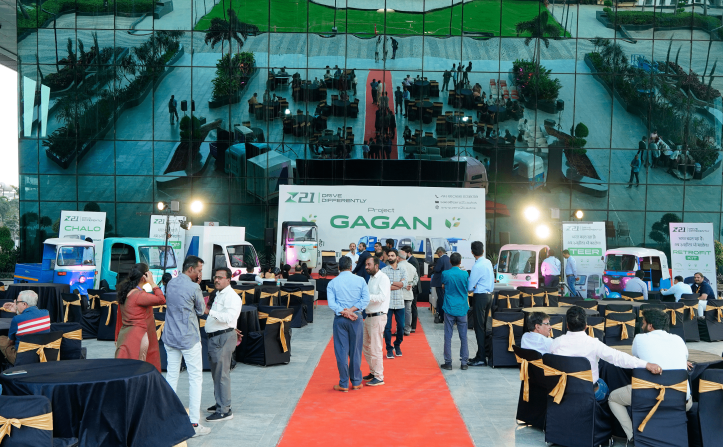ZERO21’s Project Gagan allows retrofitting ICE autos with EV powertrain
Based in Hyderabad, India, ZERO21 Renewable Energy Solutions Pvt. Ltd. announced the launch of Project Gagan, an innovative initiative to reshape the landscape of auto-rickshaw mobility in India. Beyond introducing an innovative product range, Project Gagan aligns with a broader mission of promoting sustainable living in India, one of the world’s most dynamic nations. Zero21 aims to target 100,000 autos as part of Project Gagan through retrofitment or exchange to new electric autos in the next 5 years.
Project Gagan is a plan offering owners of fossil fuel auto-rickshaws the option to retrofit their vehicles into electric or exchange them for new electric three-wheelers. The retrofitting process, facilitated by a specially designed Conversion Kit, seamlessly converts any internal combustion engine (ICE) passenger three-wheeler to electric in less than four hours. This forward-thinking approach allows owners to transition to electric mobility faster and effortlessly, ensuring an extended vehicle life with minimal maintenance and exceptionally low running costs.
As part of ZERO21’s strategic vision to uplift the image of the three-wheeler & facilitate faster services, the company has introduced Roadside Assistance (RSA) with a unique theme. Project Gagan primarily targets auto-rickshaw owners and fleet operators with the core objective of enhancing health through reduced pollution and lower operating & maintenance costs, providing long-term financial benefits to drivers. By replacing older, less efficient auto-rickshaws with clean energy Electric Vehicles (EVs), this initiative aims to significantly reduce air and noise pollution, contributing to a healthier environment. The project seamlessly aligns with broader goals of sustainable urban development by encouraging the adoption of EVs and supporting the transition to a more sustainable transportation system.
